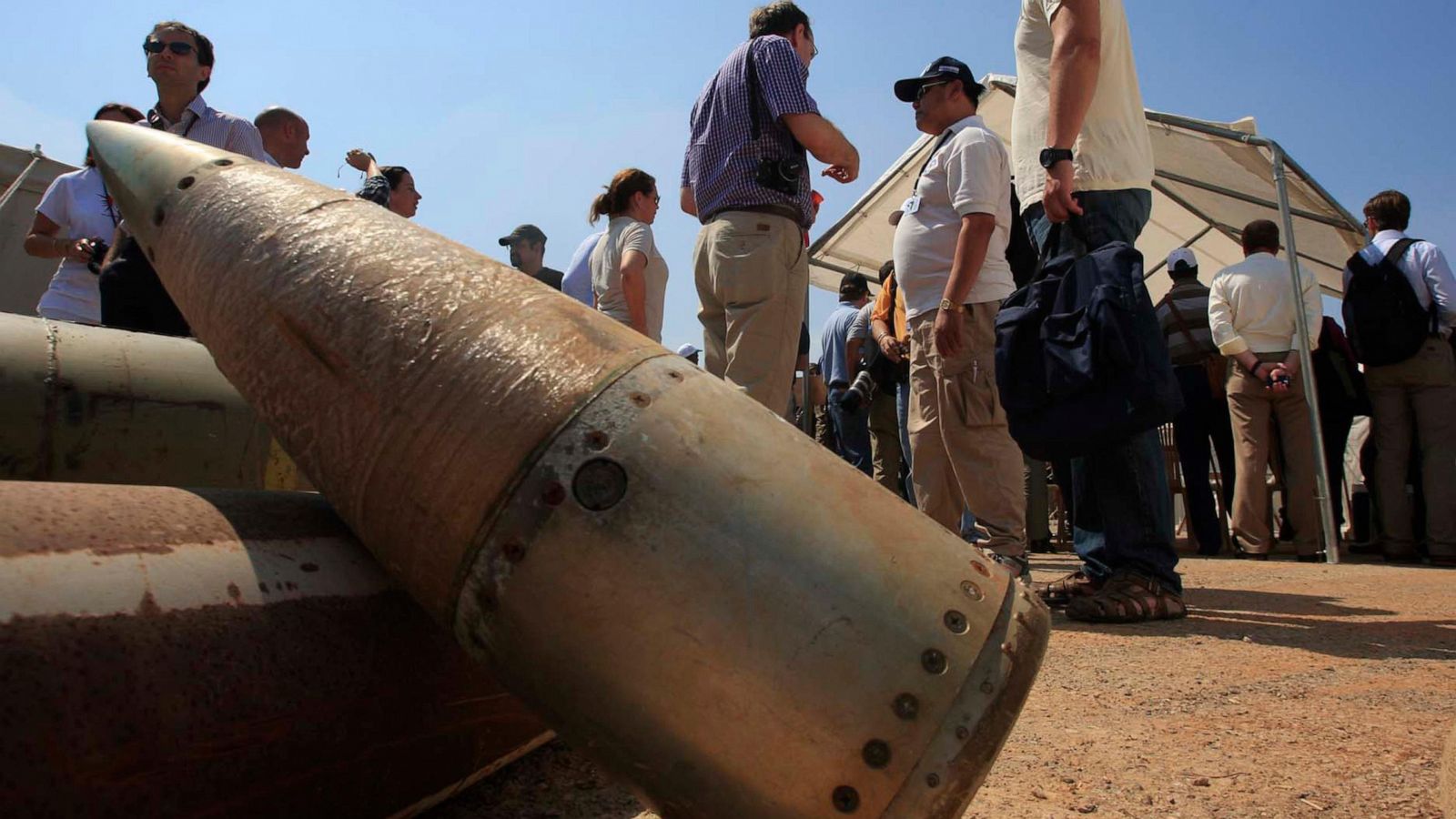In a move that has sparked international criticism, the United States announced on Friday 7July, its intention to send cluster munitions to Ukraine as part of a substantial security package worth $800 million. The decision has drawn strong opposition from United Nations Secretary General Antonio Guterres, who expressed his concern regarding the use of these weapons on the battlefield.
Cluster munitions are known for releasing numerous smaller bomblets that have the potential to cause indiscriminate harm over a wide area. Furthermore, these bomblets can remain unexploded for long periods, functioning similarly to landmines and posing a significant threat to civilians. The consequences of their use can still be seen today in areas such as south Lebanon, where cluster munitions fired by Israel during the 2006 war continue to endanger civilians.
Farhan Haq, the deputy spokesperson for Secretary General Guterres, emphasized that the UN chief firmly supports the Convention on Cluster Munitions, which aims to prohibit the use, production, and transfer of these weapons. Guterres stands against the deployment of cluster munitions due to their severe humanitarian consequences and potential long-term impact on affected communities.
While acknowledging the risk of civilian harm posed by unexploded ordnance from cluster munitions, Jake Sullivan, President Joe Biden’s national security adviser, argued that Ukraine requires these weapons to defend itself against Russia, as it is running out of ammunition. Sullivan asserted that Ukraine has provided written assurances that it will use the cluster munitions carefully to minimize risks to civilians. The US National Security Council was unanimous in its decision to send these weapons to Ukraine.
The US security aid package includes cluster munitions launched by 155-millimeter Howitzer cannons, additional Howitzer cannons, Patriot air defense munitions, and anti-tank weapons. It also includes new Penguin drones, High Mobility Artillery Rocket Systems (HIMARS) missiles, and ground vehicles such as Bradley fighting vehicles and Stryker armored personnel carriers. This is the 42nd aid package from the United States to Ukraine, totaling more than $40 billion since the invasion.
Although cluster munitions are not universally banned, more than 120 countries, including most NATO members, have ratified a convention prohibiting their use. Notably, the US, Ukraine, and Russia are not party to this agreement. This controversial decision by the US has drawn criticism from human rights groups, urging Washington to reconsider its policy. Even Germany, a US ally, expressed its opposition to sending cluster munitions to Ukraine, with Foreign Minister Annalena Baerbock stating her disapproval.
NATO Secretary-General Jens Stoltenberg, however, took a neutral stance on the issue, stating that the alliance does not hold a position and leaves it to individual member states to determine their policies regarding cluster munitions.
It is worth noting that a 2009 US law prohibits the export of American cluster munitions with bomblet failure rates higher than 1 percent, covering the majority of the US military stockpile. President Biden, similar to his predecessor Donald Trump in 2021, waived these prohibitions to enable the export of cluster munitions technology to South Korea.
As the controversy surrounding the US decision to provide cluster munitions to Ukraine intensifies, the international community anxiously watches the potential humanitarian impact of these weapons in the ongoing conflict. The opposition from the UN chief and human rights groups adds pressure on the US to reconsider its stance and prioritize the protection of civilian lives in conflict zones.















